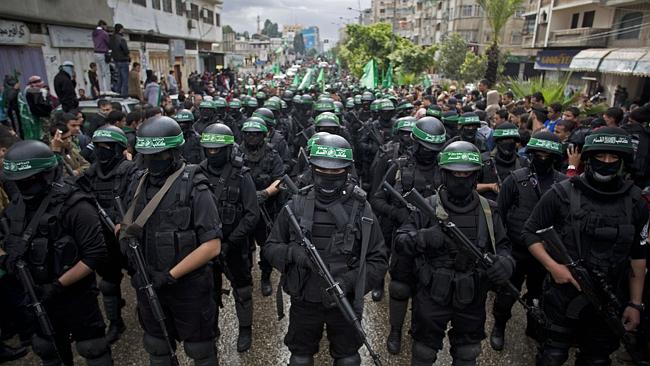IN THE MEDIA
Hamas remains the barrier to rebuilding Gaza
March 9, 2015 | Sharyn Mittelman

SHARYN MITTELMAN
Herald Sun – March 09, 2015
LAST October, the international community pledged a massive $7 billion to assist the Gaza strip’s reconstruction after Hamas’s July war with Israel.
However, only about 5 per cent of the money has been delivered to Gaza so far and reconstruction is clearly slow. While some aid agencies based in Gaza blame Israel’s security blockade for the slow rate of reconstruction (while ignoring Egypt’s total blockade), the real reasons lie elsewhere.
A UN-designed framework, the Gaza Reconstruction Mechanism, was accepted in September by all parties, including Israel, the Palestinian Authority and Hamas.
The GRM is designed to ensure money and other aid is used to help Gaza civilians and not Hamas – the Islamist terrorist movement dedicated to Israel’s destruction which has ruled Gaza since 2007.
But both Hamas and the PA, which is supposed to have a key role in overseeing reconstruction, have refused to meet their commitments under that UN framework. Under the GRM, the PA would return to Gaza and station troops and administrators along the borders and be responsible for the bulk of reconstruction with input from Gaza’s private sector. UN agencies, with Israeli co-operation, were to fast-track and expand existing programs to build schools, clinics, and basic infrastructure.
Contrary to some claims, Israel’s security blockade does not limit imports of food, medicine, fuel or other consumer goods. It restricts only the import of materials for constructing weapons and building supplies, including concrete, because Hamas uses those resources to build tunnels and other fortifications to attack Israelis.
Under the GRM, Israel agreed to greatly ease restrictions on building materials providing either the PA or international agencies supervised that they were being used only for civilian reconstruction. But the PA has not returned to the strip and Hamas is refusing to relinquish any significant control to it, despite its earlier promises.
As Arab League Secretary-General Nabil Elaraby said on February 22: “The internal differences and the absence of co-operation between the Palestinian Authority and Hamas are behind the delay in reconstructing the Gaza strip.”
Robert Serry, the UN’s special co-ordinator for the Middle East peace process commented: “We have a (UN) mechanism that is working, but almost everything else is not in place.”
The parts of the GRM that do not rely on PA and Hamas co-operation are actually working moderately well. Israel reports that it enables 550 trucks to enter Gaza daily with goods and that the strip has received more than 65,000 tonnes of cement. More than 45,000 Gaza residents have been approved to purchase this material to repair their homes and there is reportedly more cement in Gaza than can legally be bought under the GRM system. The UN says the system “is increasingly working well for repairs” to homes.
Where things are working badly is on rebuilding homes that were totally destroyed – which the PA is supposed to oversee. Meanwhile, Hamas has grown increasingly hostile to the GRM and on January 28, spurred protesters to ransack a UN compound in Gaza.
Instead of helping with civilian rebuilding, Hamas is focused on building up its military infrastructure for the next conflict with Israel – on top of the ones it provoked in 2009, 2012 and 2014.
It has trained more than 17,000 youths in military camps and is rapidly rebuilding destroyed rocket factories. It is also taxing construction materials entering Gaza and has reportedly diverted some of them into rebuilding military tunnels.
Of course, more should be done to improve humanitarian conditions for Gazans. However, a UN framework that should have led to rapid repairs is failing primarily due to divisions between Hamas and the PA, not because of Israel’s blockade.
Aid workers based in Gaza, under Hamas’s totalitarian control, obviously can’t say so, but the key is for Hamas to end its destructive behaviour and work with the PA, as they accepted under the GRM.
SHARYN MITTLEMAN IS A SENIOR POLICY ANALYST AT THE AUSTRALIA/ISRAEL & JEWISH AFFAIRS COUNCIL
Tags:





